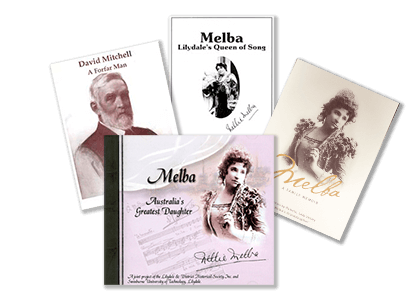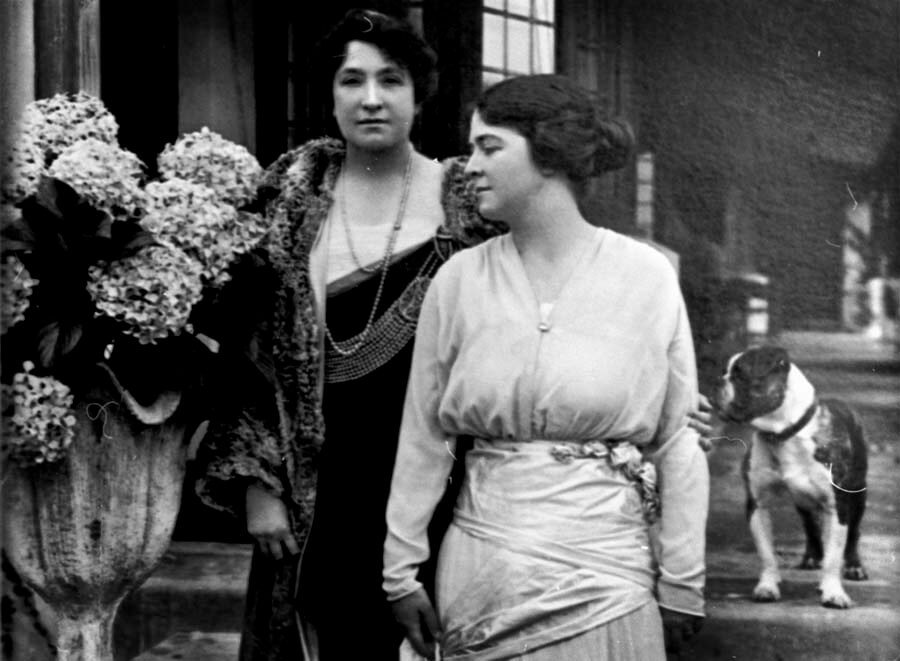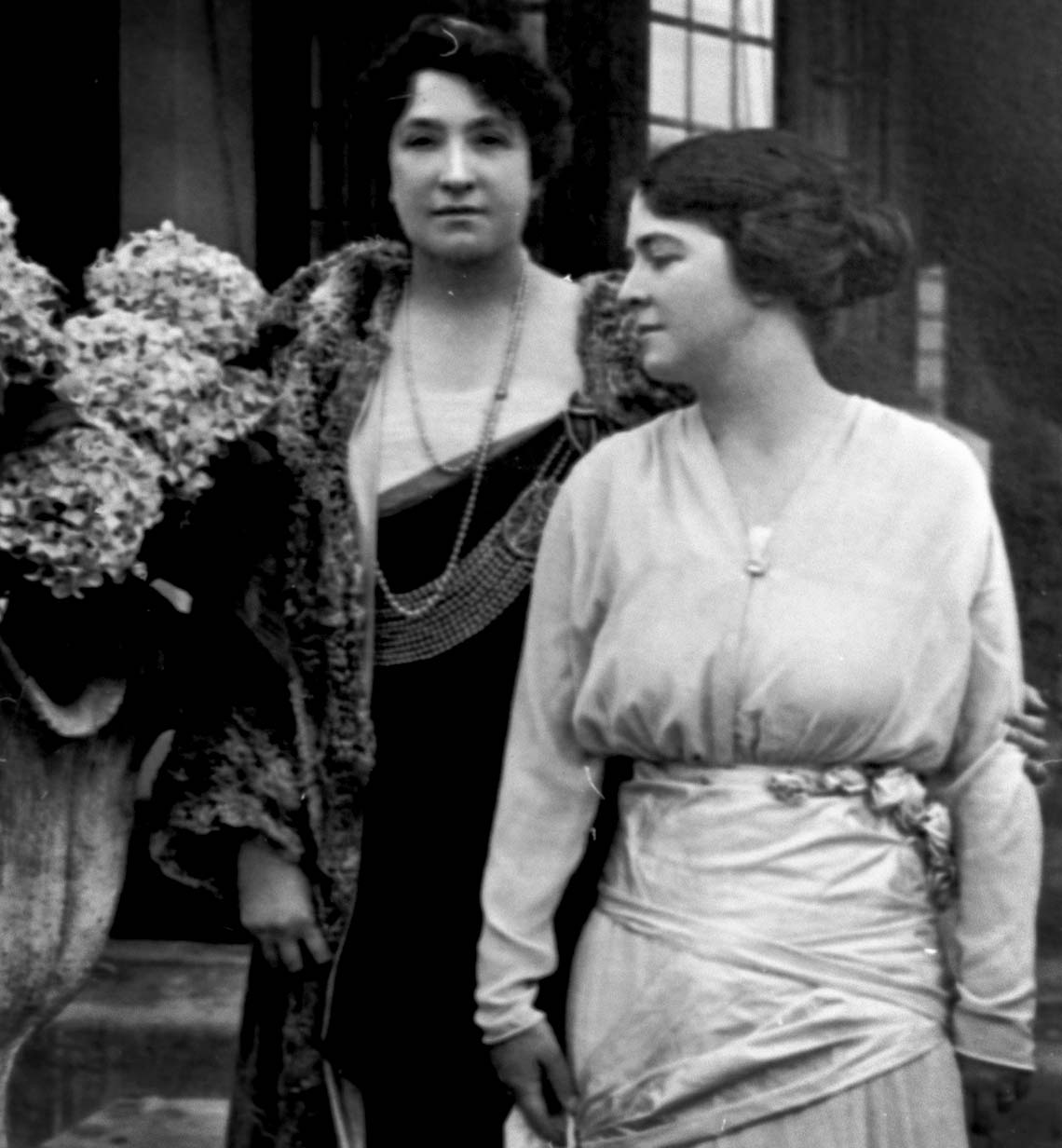
Biography | Covent Garden Debut
Introduction
After making her operatic debut at Theatre de la Monnaie in Brussels on October 13, 1887, Melba seemed to have the world at her feet. Despite her inexperience, the hard-nosed critics and the critical opera lovers praised her performances in roles she had not previously performed.
She had dreamt of appearing at Covent Garden and that became a reality the following year on May 24, 1888, just five days after her 27th birthday.
However, the reception was very different to that of the Belgians.

Debut at Covent Garden
At the end of her Belgian season, Melba and George packed and went to England, back to the country that hosted her first European performance. Charles and his family were also pleased with their return. Charles had gone into partnership with a friend in a small farm at Littlehampton in Sussex near to his mother, brothers and sisters. Melba took George to Rustington to stay with his grandmother.
In Melba: A Family Memoir, Pamela Vestey writes:
“.. with his good eye for a horse, he had already bought, trained and sold several horses, and the rest of the livestock on the farm was doing well.”
For George life was different from that of his mother:
“George enjoyed his visits to his grandmother. ‘She was a darling,’ he remembered years later. The aunts made a fuss of him, and he met a couple of rather frightening uncles whom his father later mimicked, making George laugh.” (1)
Melba was excited but that soon passed as she said the public reception, the surroundings and the atmosphere seemed designed to depress her.
“I lived in Bayswater, in one of the most gloomy streets in London. I knew nobody, my father had gone, and as yet I had made no friends, and after the triumph of Brussels I felt so depressed that I wondered how I was going to bear London at all.” (2)
However, her excitement at appearing at Covent Garden eased the depression though the location was a surprise to her:
“I had walked to the Theatre through the market, and as I stepped over the cabbage tips and the fruit skins and the straw, and paused in front of the stage door, I said:
‘Surely this is not Covent Garden! Surely the National Opera House is not in a place like this?'” (3)
But it was and didn’t take long for Melba to realise she was not the star of the season or Covent Garden.
Melba wanted to sing Rigoletto, as that was the opera in which she had made her European debut. But Madame Albani who was the reigning star at Covent Garden took that role.
The roster at that time included Zelie de Lussan, Lillian Nordica, Minnie Hauk, Jean and Edouard de Reszke and Jean Lassalle.

Melba made her debut at Covent Garden on Thursday, May 24, 1888 singing Lucia di Lammermoor.
Her second appearance on June 12 was in Rigoletto with Scalachi and d’Andrade.
But to Melba there was nothing thrilling about her first night.
“There had been no sort of announcement of my appearance in the papers; there had been none of the usual preliminaries which are necessary to arouse the public to any state of expectancy. I do not believe that the greatest critics have been bothered to look in at all.”
“The House was half full. There was a general air of apathy over the stalls and boxes. Even the orchestra, with whom I had had one hasty and slovenly rehearsal seemed half asleep…” (4)
The next day didn’t dispel Melba’s sense of disappointment. As she read the reviews of her debut performance she was
“filled with a feeling, first of indignation, then of astonishment, and then of amusement. Of my voice they said practically nothing. They seemed to be concerned solely with my powers as an actress, and of these they spoke in terms too generous for my capabilities.”
“They seem altogether to have forgotten that my job was to sing, not to act! And I know that in those days I could not act.” (5)
Punch reported:
Operatic Notes, Thursday, May 24, 1888. Madame Melba de-buted and Signor Cotogni rentred. Opera Lucia di Lammermoor, Scotch Opera, Miss McIntyre ought to have been in it, but it is, Miss Melba from Melbourne (real name Armstrong, and “more power to her elbow!”), was a great success. Bouquets to-night. (6)
Melba recorded what the other papers said:
Standard: ‘Her capacity as an actress is quite sufficient to render all possible justice to the character.’
Pall Mall Gazette: ‘Accomplished acting.’
Daily Chronicle: ‘She appears to have mastered the dramatic features of the characters she represents.’
Observer: ‘Genuine dramatic instinct.’
Morning Advertiser: ‘Intelligent dramatically.’
Stage: ‘As an actress she has much in her favour’ (7)
Agnes Murphy added some further reports:
The Times: Madame Melba availed herself of the dramatic opportunities to considerable advantage, especially the painful scene with her father in the Duke’s palace was realized with truth as well as delicacy.’
The Daily Telegraph: In moments of intense feeling she is capable of striking effects that seem spontaneous.’
The Morning Post: ‘Her admirable interpretation of the dramatic situation in the Marriage Scene inspired all those who were concerned with her.’
Vanity Fair: ‘Displays much emotional power as an actress.’
The Globe: ‘Her acting was graceful, expressive, and dramatic.’
The Weekly Advertiser: ‘Acted with much dramatic force and true expression.’
The Queen: ‘The part really affords no scope for originality of treatment, but she at times gave evidence of ability to portray genuine dramatic passion.’
The Echo: Fine artistic qualities, both from a vocal and dramatic point.’
The Era: ‘Charming simplicity and expression of style in keeping with the spirit of the character.’
The Lady’s Pictorial: ‘Betrayed in certain scenes a strong dramatic instinct, while her impersonation generally was marked by admirable intelligence and feeling.’
The Musical Standard: ‘Shows dramatic power.’
The St James’s Gazette: ‘Her dramatic singing in the scene with the Hunchback is very impressive.’ (8)
One of the greatest critics, Heuffer in The Times, wrote of the Lucia debut:
“That Madame Melba will in the end be successful there is little reason to doubt. Although the impression produced by her debut was an overpowering one although Mme Melba proved herself to be a talented and well-trained artists, who, for all one can tell, may be endowed with dramatic as well as vocal ability.” (9)
Some publications did go a bit further:
The Musical Times reported on Melba’s debut season:
Madame Melba -comes to us direct from Brussels but is Australian by birth and formerly sang in London under the name of Armstrong. She made her first appearance as Lucia, and achieved a considerable success, due partly to physical advantages as an actress, partly to vocal talent which has been highly cultivated. We cannot speak decidedly about Madame Melba’s pretensions after seeing her only in such a part as that of Donizetti’s very conventional heroine, but there can be no doubt that she possesses qualifications above the average. Her singing, though marred by a little hardness of voice, and a tendency to false intonation in moments of excitement, may, at any rate, be so described, and a considerable future for the artist is clearly “on the cards.” (10)
And the following month:
“Madame Melba, an Australian soprano, made an effect good enough to warrant her retention on the active list. Madame Melba is a fluent vocalist, and a quite respectable representative of light soprano parts; but she lacks the personal charm necessary to a great figure on the lyric stage.” (11)
Melba sang a third time and the response was again pathetic. Covent Garden manager Augustus Harris offered her the role of Oscar the Page in Verdi’s Ballo in Maschera.
Melba’s reply was to pack her trunks and return to Brussels. (12)
References
(1) P. Vestey, Melba: A Family Memoir, Pamela Vestey, Coldstream, Melbourne 2000, pg 44
(2) N. Melba, Melodies and Memories, Thornton Butterworth Ltd, London, 1925, pg. 53.
(3) N. Melba, op. cit., pg 54.
(4) N. Melba, op. cit., pg 54-55.
(5) (N. Melba, op. cit., pg 55.
(6) P. Vestey, Melba: A Family Memoir, Pamela Vestey, Coldstream, Melbourne 2000, pg 44.
(7) N. Melba, op. cit., pg 55.
(8) A. Murphy, Melba: A Biography, Doubleday, Page & Co, New York, 1909, pg 34-35.
(9) T. Radic, Melba The Voice of Australia, The Macmillan Company of Australia Ltd, Melbourne, 1986 , pg 54.
(10) The Musical Times and Singing Class Circular, Vol. 29, No. 544, June 1, 1888, pg 345. This record has been provided through JSTOR. http://www.jstor.org
(11) The Musical Times and Singing Class Circular, Vol. 29, No. 545. (Jul. 1, 1888), p. 411. This record has been provided through JSTOR. http://www.jstor.org
(12) N. Melba, op. cit., pg 56.
Online Shop
Purchase books, CDs, photographs and other merchandise



Share Your Information with the Museum!
Email us your info (and images) to:
[email protected]
Our home is the Old Lilydale Court House:
61 Castella Street, Lilydale 3140
Hours of opening:
By appointment only:
Fridays 1 to 4pm and Saturdays to Mondays 11am to 4pm.
Sundays are preferred.
Closed Public Holidays

Nellie Melba Museum
Contact Details:
Sue Thompson: 0475 219 884
Email: [email protected]
Share your info with us:
[email protected]
Our home is the Old Lilydale Court House:
61 Castella Street, Lilydale 3140
Hours of opening:
By Appointment only:
Fridays 1 to 4pm and Saturdays to Mondays 11am to 4pm.
Sundays are preferred.
Closed Public Holidays

Nellie Melba Museum
Contact Details:
Sue Thompson: 0475 219 884
[email protected]
Nellie Melba Museum
Contact Details:
Sue Thompson: 0475 219 884
[email protected]
Our home is the Old Lilydale Court House:
61 Castella Street, Lilydale 3140
Hours of opening:
By appointment only:
Fridays 1 to 4pm and Saturdays to Mondays 11am to 4pm.
Sundays are preferred.
Closed Public Holidays
Share Your Information
with Nellie Melba Museum!
Sue Thompson: 0475 219 884
[email protected]

